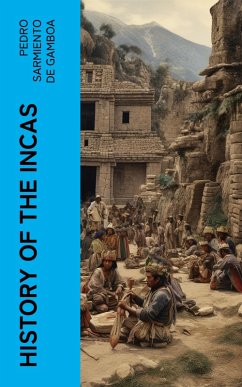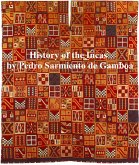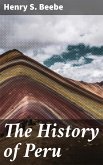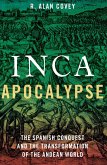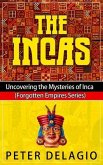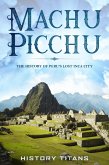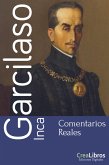History of the Incas is a work by Pedro Sarmiento de Gamboa. It details the origins, myths and wars of the Incan Empire as a reading preparation for Phillip II.
Dieser Download kann aus rechtlichen Gründen nur mit Rechnungsadresse in A, B, BG, CY, CZ, D, DK, EW, E, FIN, F, GR, H, IRL, I, LT, L, LR, M, NL, PL, P, R, S, SLO, SK ausgeliefert werden.

